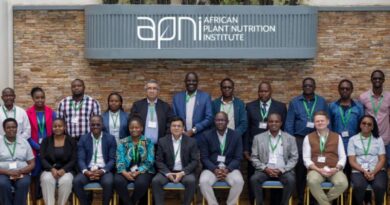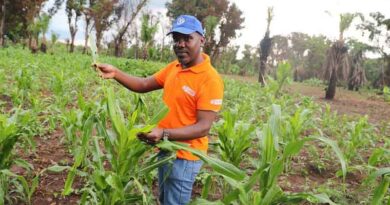Risks of GMO crops under the microscope in Kenyan study
06 June 2023, Kenya: The risks posed by Genetically Modified (GM) crops has come under the microscope as part of a study in Kenya aimed at investigating technological challenges in development and food security.
As part of a project, funded by The British Academy and in partnership with lead institution The University of Warwick and the University of Nairobi, this project, ‘Technological Risks in Development: Food Security, Super-Wicked Problems and the Decolonization of Technological Governance,’ investigated how technologies – that have been introduced as solutions to food insecurity – have contributed to the creation of new technological risks and how these technologies should be governed.
Genetically Modified (GM) crops have been introduced as solutions to food insecurity in many parts of the world. However, such technologies have brought with them unintended risks for local communities and their environment such as the loss of biodiversity, poor food quality and food safety. As such, deployment of these technologies has led to public debate and policy largely centered on concerns that they are either inappropriate or inadequately tested.
Food security is a global concern for an increasing human population expected to reach 10 billion by 2050. In Kenya alone, the population is predicted to rise to 84.7 million by the middle of this century – according to data from the UN Department of Economic and Social Affairs. It is anticipated to double to 112 million by 2100.
Given the food security crisis in Kenya, a lasting solution can only lie in the development and adoption of technologies that improve agricultural productivity. Science, technology, and innovation can play a critical role in producing more food by creating plant varieties with improved traits, as well as optimizing the inputs needed to make agriculture more productive.
Genetic modification provides a number of benefits including tolerance to insects and disease and drought. However, the deployment of Genetically Modified Organisms (GMO) had led to public concerns over their safety.
CABI surveyed 319 farm households, in five counties of Kenya – Narok, Machakos, Isiolo, Elgeyo-Marakwet and Trans Nzoia – to assess the local knowledge, attitudes and practices that might inform the responsible implementation of such technologies as GM crops. In addition, 20 key informant interviews were held and a feedback meeting involving multi-stakeholders in the sector.
Interviews with key informants showed indications that commercialization of GM crops in Kenya is the ultimate aim, informed by anticipated benefits that are seen as capable of addressing looming food insecurity. Much progress has been made in the development of a GMO regulatory and institutional framework to manage research, development and release of GM crops in Kenya.
At the community level, only 45% of the respondents had heard about GM crops prior to the study but only a few could describe it in simple and accurate terms. When asked about the benefits, the majority believed that the technology has positive impacts.
However, respondents expressed concerns. For instance, 55% indicated potential loss of biodiversity and 33% expressed fears over health risks including cancer, immune suppression, loss of nutrition and antibiotic resistance.
Dr Monica Kansiime, Project Manager for CABI and Deputy Director, Development and Outreach, Africa, said, “To maintain and improve food security, it is necessary to ensure that agricultural production is effective, efficient and sustainable.
“The low local-level awareness of GM technology implies the need for public education, particularly now as there are already released GM crops in Kenya e.g. insect-resistant, genetically modified Bt Cotton and conditional approval and testing of some other GM crops which might be available for farm production soon.
“Awareness can focus on the safety of GM ingredients in food for human consumption as well as ethical issues such as the impact on the environment, traditional farming practices, potential corporate dominance and the ‘unnaturalness’ of the technology.”
Dr Kansiime added that regarding technology governance, there are many regulatory bodies and synchronisation of mandates will be key to avoid potential conflict.
Also Read: Rajasthan Government categorizes Agrochemical companies based on sample report
(For Latest Agriculture News & Updates, follow Krishak Jagat on Google News)















